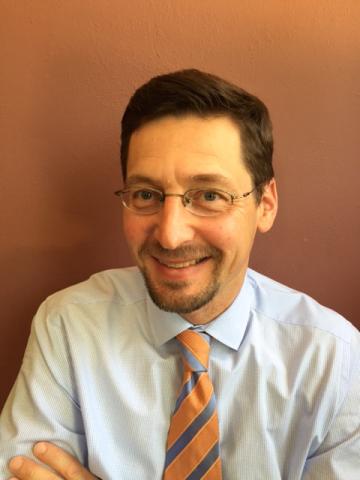
Ulrich Rosenhagen was Associate Director of the Lubar Institute for the Study of the Abrahamic Religions at the University of Wisconsin-Madison until its closing in 2016. He is currently on leave from the university and is working as Lutheran pastor in Kassel, Germany, where he is organizing support programs to integrate Muslim refugees into German society. He is preparing to launch the new Center for Religion and Global Citizenry at the University of Wisconsin-Madison in 2017.
He received his Ph.D. from the University of Heidelberg in 2012 and is author of Brudermord, Freiheitsdrang, Weltenrichter: Religiöse Kommunikation und öffentliche Theologie in der amerikanischen Revolutionsepoche (Fratricide, Desire for Freedom, Judge of the World: Religious Communication and Public Theology during the American Revolution), Berlin: Walter de Gruyter (2015). He edited Nostra Aetate and the Future of Interreligious Dialogue with Charles L. Cohen and Paul F. Knitter (forthcoming with Orbis) and is in the process of editing The Holy in a Pluralistic World: Rudolf Otto’s Legacy in the Twenty-First Century with Gregory Alles (forthcoming with Equinox).
He was a researcher at the Technical University of Dresden, has held a research fellowship at Boston University, and has written in academic and non-academic journals on Jewish-Christian relations, Social Protestantism, and interreligious dialogue. His main research interests are interreligious and Abrahamic relations, and the work of Rudolf Otto, the author of The Idea of the Holy (1917).
He also worked for several years in the ministry in Germany and Miami.
Posts By This Author
The City Upon a Hill in an Age of Donald Trump
While I was in Germany last week, watching the American election from afar, the Lutheran lectionary called for Micah 6:6-8 as text. That last verse plays a central role in America’s self-perception. It leads back to the year 1630, when a group of pious Calvinists sailed from England to North America. Boxed in between state church and English monarchy, they longed for more space to follow their religion. They wanted to build a society centered on the word of the God of the Bible. The Pilgrims decided to leave Europe and its institutions to become American immigrants. No walls could have stopped them.
Anti-Semitism Among Refugees a Quandary for Germany

Image via REUTERS/Fabrizio Bensch - RTX2533D / RNS
While many countries in Europe have sealed their borders to refugees, Germany has done the opposite. Last year, the country registered over 1 million asylum seekers, including 425,000 from ravaged Syria.
No other country in the European Union has accepted as many. For Syrians and others who risk their lives crossing the Mediterranean Sea in rubber dinghies, Germany has become a beacon of hope.
